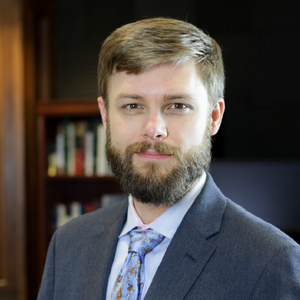Judicial Reform
Trent England | January 1, 2017
Shift Power from the Elites to the People: Reform the Judicial Nominating Commission
Trent England
By Trent England
No federal judges were on the ballot in 2016. Of course, federal judges are never on the ballot, and yet they are routinely an important subject in campaigns for President and U.S. Senate.
On the other hand, Oklahoma Supreme Court justices and other state judges were on the ballot. Most voters knew little or nothing about these judges, and all won their retention votes. In fact, no Oklahoma judge has ever lost a retention election.
How can this be? The Oklahoma Supreme Court lately has struck down limits on abortion, deconstructed workers’ compensation reforms, and evicted the Ten Commandments from the Capitol grounds. It allowed State Question 779 on the ballot even though the measure was a textbook example of the kind of “log rolling” prohibited by the Oklahoma Constitution’s single-subject rule. Academic studies confirm the obvious: Oklahoma is a conservative state with a liberal Supreme Court.
The U.S. Constitution protects judicial independence while empowering the people to steer the course of the judiciary over time. Voters in presidential and senatorial campaigns argue about judicial philosophy because the Constitution gives voters power to elect the officials that control who will sit on the federal bench.
The Oklahoma Constitution is a failure in this regard. While the Governor technically appoints justices and appellate judges, she is forced to choose from among three candidates selected by the unaccountable Judicial Nominating Commission (JNC). The Oklahoma Constitution establishes the JNC, which is made up of nine political appointees and six lawyers selected by the Oklahoma Bar Association. In other words, no voter has any power over the JNC, but a tiny group of elites has a guaranteed say.
No wonder Oklahoma voters spend more time talking about federal judges than state judges—even those state judges who appear on the ballot. After all, voters can fire a judge in a retention election, but have no say in whether the new judge will be any better. Liberals, of course, delight in the inability of the majority of Oklahomans to steer the courts toward a more conservative judicial philosophy.
Constitutional reform is necessary to shift power back to the people. One reform would be to limit the JNC’s power to excluding only candidates who do not meet the requirements to be a judge, and perhaps allowing it to offer advice to the Governor. This could allow the JNC to continue and even allow the Oklahoma Bar Association to have a say, without allowing elites to control the outcome. Of course, it would be wise to give elected legislators, most likely the state Senate, confirmation power (with a requirement that they vote within a definite amount of time).
This would make judges and judicial philosophy a part of gubernatorial and state Senate campaigns. It would also give voters a reason to take retention elections seriously, since they might have some assurance that new judges would not be more of the same.
Another simple judicial reform can be accomplished without changing the state Constitution. The current Oklahoma Supreme Court districts are based on Oklahoma’s 1960s congressional districts. These 50-year-old districts are so out of step with population changes that they make it harder than it needs to be to find qualified candidates for judicial positions. This is a simple, common-sense reform that the legislature can make on its own.
Judicial independence does not mean judicial supremacy, nor does it suggest that a small group of legal elites should control who can become a judge. The U.S. Constitution strikes the proper balance, and offers a model the legislature should use to reform judicial selection in Oklahoma.
Trent England serves as Vice President for Strategic Initiatives at the Oklahoma Council of Public Affairs, where he also is the David and Ann Brown Distinguished Fellow for the Advancement of Liberty and directs the Center for the Constitution & Freedom and the Save Our States project. He also hosts a radio program, The Trent England Show, from 7-9 a.m. every weekday on Oklahoma’s AM 1640, “The Eagle.”

Trent England
David and Ann Brown Distinguished Fellow
Trent England is the David and Ann Brown Distinguished Fellow at the Oklahoma Council of Public Affairs, where he previously served as executive vice president. He is also the founder and executive director of Save Our States, which educates Americans about the importance of the Electoral College. England is a producer of the feature-length documentary “Safeguard: An Electoral College Story.” He has appeared three times on Fox & Friends and is a frequent guest on media programs from coast to coast. He is the author of Why We Must Defend the Electoral College and a contributor to The Heritage Guide to the Constitution and One Nation Under Arrest: How Crazy Laws, Rogue Prosecutors, and Activist Judges Threaten Your Liberty. His writing has also appeared in the Wall Street Journal, USA Today, Washington Times, Hillsdale College's Imprimis speech digest, and other publications. Trent formerly hosted morning drive-time radio in Oklahoma City and has filled for various radio hosts including Ben Shapiro. A former legal policy analyst at The Heritage Foundation, he holds a law degree from The George Mason University School of Law and a bachelor of arts in government from Claremont McKenna College.